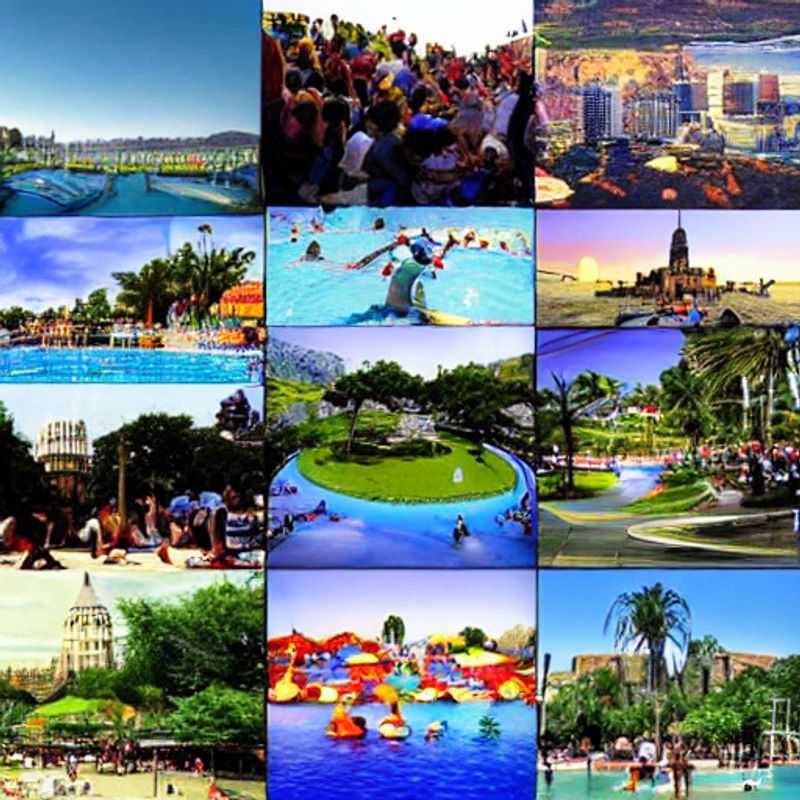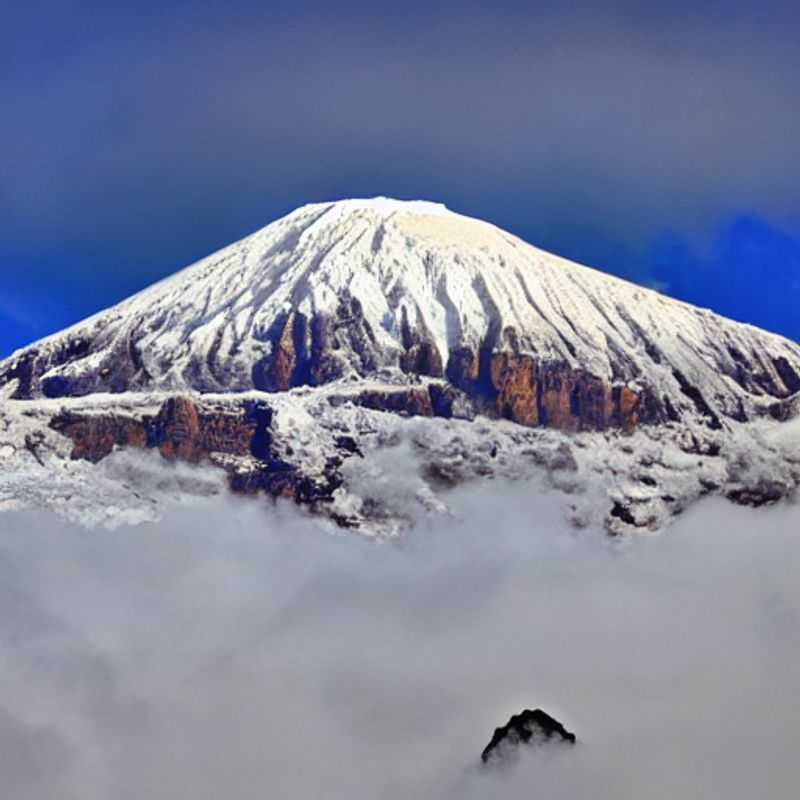Kilimanjaro Camping: 4 Must-See Summer Spots (and is it a good idea?)

Mount Kilimanjaro 2026: Your Essential Travel Safety Guide
Preparing for a Mount Kilimanjaro adventure in 2026 requires meticulous planning, with safety being the paramount concern. This guide offers essential insights to ensure a secure and memorable journey up Africa's highest peak. Altitude sickness is the most significant risk, and proper acclimatization is non-negotiable. This means choosing a reputable tour operator that prioritizes slow ascent profiles and adequate rest days. Always communicate any symptoms, however mild, to your guide immediately; early intervention is key.
Beyond altitude, physical fitness is crucial. Begin training months in advance, focusing on stamina and leg strength. Invest in high-quality, broken-in hiking boots to prevent blisters and provide essential ankle support. Layering your clothing is vital for managing temperature fluctuations; pack moisture-wicking base layers, insulating mid-layers, and a waterproof and windproof outer shell. Don't forget warm headwear, gloves, and sturdy socks.
Your tour operator should provide trained and certified guides who are experienced in mountain rescue and first aid. Verify their credentials and ensure they carry a comprehensive first-aid kit and oxygen. Stay hydrated by drinking plenty of water, even when you don't feel thirsty; dehydration exacerbates altitude sickness. Also, maintain a good diet, consuming energy-rich foods. Be aware of basic hygiene practices, such as washing your hands frequently, to avoid gastrointestinal issues.
Finally, research and choose a tour company with a proven track record of safety and ethical practices. Understand their emergency procedures and communication protocols. Travel insurance that covers high-altitude trekking and emergency medical evacuation is absolutely essential for Kilimanjaro climbs. By prioritizing these safety aspects, your 2026 expedition will be a triumph of preparation and adventure.

You may also like
Kilimanjaro in Summer: A Tech-Nomad's Guide to Heat, Crowds, & Mythical Views
Decoding Kilimanjaro's Summer Secrets: Sun, Festivals, and Hidden History
Is Kilimanjaro's Summer Sizzle Worth It? A Data-Driven Adventure
Kilimanjaro's Summer Solstice: Balancing Crowds, Cost, and Epic Views
Beat the Heat (and the Tourists!): My Kilimanjaro Summer Survival Guide
Kilimanjaro's Summer Enigma: Unveiling the Myths Behind the Majestic Peak
Sun, Sea, and Summit: The Unexpected Delights of a Kilimanjaro Summer Trip
Kilimanjaro's Summer Bounty: Seasonal Delights and Adventure Awaits
Greetings, fellow digital nomads and intrepid family adventurers! Planning a Kilimanjaro caravan escapade with your little ones? Let's navigate this thrilling expedition together, blending tech-savvy tips with the magic of Tanzania.
Forget sweltering summer heat; winter in Kilimanjaro offers a much more pleasant climate for outdoor adventures. While still warm, temperatures are far more manageable for exploring with kids. Expect shorter queues at the popular viewpoints compared to the peak summer months. This also means potentially lower accommodation and flight costs — a bonus for budget-conscious families! Expect to spend roughly $2000-$5000 on flights and accommodation depending on your family size and the duration of your stay.
Your caravan will be your home-on-wheels, offering flexibility and unique perspectives. Remember, some smaller local businesses might have reduced hours or be closed during the low season, so planning ahead is crucial. Pack plenty of snacks and water, especially if you venture off the beaten path. But longer daylight hours mean extended playtime and ample opportunities for capturing stunning sunsets on camera.
Discover the vibrant Maasai culture; their vibrant clothing, traditional dances (often featuring intricate steps and rhythmic movements), and storytelling sessions will enchant your kids. Savour delicious local cuisine. Try Nyama Choma (grilled meat), Ugali (maize flour porridge), and Matoke (steamed plantains). Budget around $50-$100 per day for food, depending on your choices. Local markets offer a sensory feast – vibrant colors, exotic spices, and the sounds of bartering create an immersive experience.
While the local people are incredibly welcoming, respectful behavior is essential. Observe their traditions and customs. The landscapes are breathtaking—expect stunning views of the mountain, savanna grasslands, and the diverse flora and fauna. Keep an eye out for baobab trees – they are pretty impressive! National Park entrance fees will vary depending on the duration of your stay, plan for roughly $100 - $300 per person.
Transportation costs will depend heavily on your itinerary. Consider around $50-$150 per day for fuel, park fees and potential guided tours. Remember, a well-maintained caravan is crucial; regular check-ups are essential. Download offline maps, because internet access might be spotty in certain areas. Consider hiring a local guide for a more immersive experience.
Finally, the overall cost of your Kilimanjaro caravan family adventure is highly variable, depending on your trip's duration, your chosen accommodation, activities, and dining choices. Expect a total cost range of $5000 - $15000 for a family of four, for a week-long trip. Remember that this is just an estimation, and it's vital to research prices and plan your budget meticulously. Pack light, embrace the unexpected, and prepare for the adventure of a lifetime!
,
You may also like
Essential Kilimanjaro 2026: Your Ultimate Backpacker's Knowledge Guide
Embarking on a trek to the majestic Mount Kilimanjaro in 2026 requires thorough preparation and essential knowledge.
Understanding the various routes, such as the popular Marangu and Machame, is crucial, as each offers a different experience and acclimatization profile. Choosing the right route significantly impacts your success and enjoyment.
Altitude sickness is a serious concern, and recognizing its symptoms and taking preventative measures like slow ascent and adequate hydration are paramount. Consulting your doctor about altitude sickness medication is highly recommended.
Packing the right gear is non-negotiable. This includes layers of clothing for varying temperatures, sturdy hiking boots, a good quality sleeping bag, and rain gear. Don't underestimate the importance of waterproof bags.
Physical fitness plays a vital role. Start training months in advance, focusing on cardiovascular endurance and leg strength. Hiking with a weighted backpack will also be beneficial.
When it comes to booking, choose reputable tour operators. Research their safety records, guide qualifications, and inclusion of essential services like park fees and accommodation. Ensure your operator adheres to ethical trekking practices.
Familiarize yourself with Tanzania's visa requirements and necessary vaccinations well before your travel date. Travel insurance covering high-altitude trekking and emergency evacuation is a must.
Respecting local culture and customs is important. Learn a few Swahili phrases and be mindful of environmental conservation efforts on the mountain.
Finally, maintain a positive mindset and be prepared for a challenging yet incredibly rewarding adventure as you aim for the Roof of Africa in 2026.